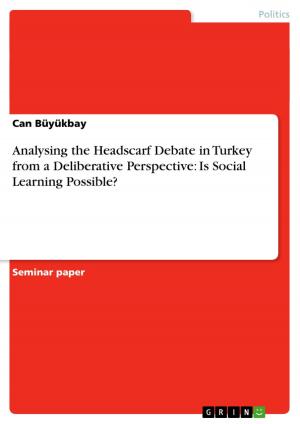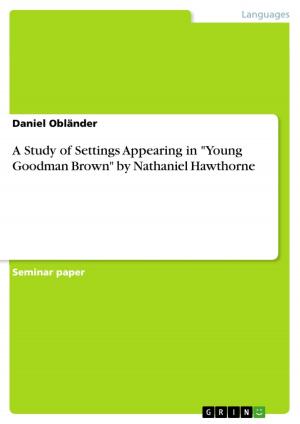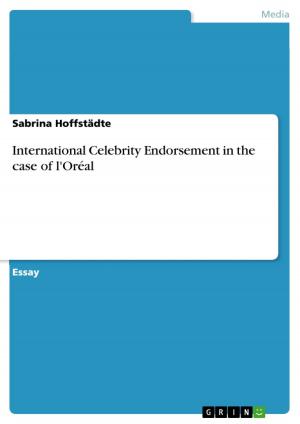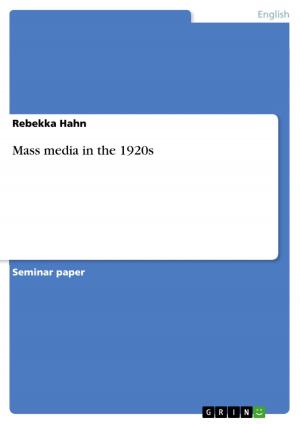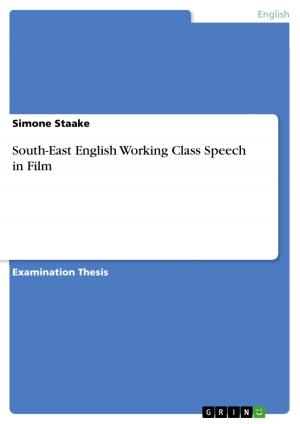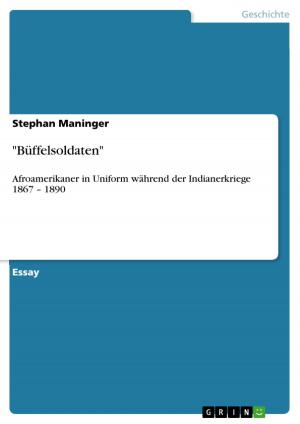Evolution of and Approaches to the Concept of 'Fossilization'
Nonfiction, Entertainment, Drama, Anthologies| Author: | Annika Onken | ISBN: | 9783656116295 |
| Publisher: | GRIN Publishing | Publication: | January 31, 2012 |
| Imprint: | GRIN Publishing | Language: | English |
| Author: | Annika Onken |
| ISBN: | 9783656116295 |
| Publisher: | GRIN Publishing |
| Publication: | January 31, 2012 |
| Imprint: | GRIN Publishing |
| Language: | English |
Seminar paper from the year 2010 in the subject English Language and Literature Studies - Linguistics, grade: 1,3, University of Münster (Englisches Seminar), course: Psycholinguistics, language: English, abstract: Fossilization is commonly described in SLA literature as a 'phenomenon of non-progression of learning despite continuous exposure to input, adequate motivation to learn, and sufficient opportunity for practice' (Han 13). The Question behind this notion is: Are adults able to ever acquire native-like competence in an L2? And if some learners are, what does this mean with respect to a majority of learners who seem not to be (cf. Han 13)? This bifurcation of possible outcomes in learning a second language is mirrored in the large variety of terms used to describe the concept of 'fossilization'. Among others, it is described 'as 'virtual halt', 'linguistic monstrosities', 'plateau', 'rigor mortis', 'stopping short', 'fossilized variation', 'permanent optionality', 'siesta' [and] 'endstate''(Han 13 - 14). Such a range of labels reveals differing conceptual ideas about the topic's nature concerning its powers of spread within the learner's interlanguage, its finitude, reoccurring continuation and inevitableness. The terms 'linguistic monstrosities' and 'fossilized variation' rather hint at only parts of the interlanguage being affected by fossilization as opposed to the notion of a completely 'fossilized interlanguage'. The term 'virtual halt' supports this idea that while some aspects seem to be fossilized others might continue to develop. Whereas the terms 'rigor mortis' and 'endstate' convey an understanding of fossilization's lethal and final everlastingness prohibiting any further linguistic development whatsoever, the terms 'siesta', 'plateau' and 'permanent optionality' ,on the other hand, consider the concept to be negotiable in some sense holding an option of resuming linguistic development. In this paper I will very briefly outline some of the major stopping points in the more than three-decade evolution of the concept 'fossilization' and illustrate key conceptional issues. Relating to these difficulties I will look at recent voices who express the need for more comprehensive empirical research and rethinking of hitherto approaches and convictions. In doing so, the focus will also be on fossilization in relation to second language instruction.
Seminar paper from the year 2010 in the subject English Language and Literature Studies - Linguistics, grade: 1,3, University of Münster (Englisches Seminar), course: Psycholinguistics, language: English, abstract: Fossilization is commonly described in SLA literature as a 'phenomenon of non-progression of learning despite continuous exposure to input, adequate motivation to learn, and sufficient opportunity for practice' (Han 13). The Question behind this notion is: Are adults able to ever acquire native-like competence in an L2? And if some learners are, what does this mean with respect to a majority of learners who seem not to be (cf. Han 13)? This bifurcation of possible outcomes in learning a second language is mirrored in the large variety of terms used to describe the concept of 'fossilization'. Among others, it is described 'as 'virtual halt', 'linguistic monstrosities', 'plateau', 'rigor mortis', 'stopping short', 'fossilized variation', 'permanent optionality', 'siesta' [and] 'endstate''(Han 13 - 14). Such a range of labels reveals differing conceptual ideas about the topic's nature concerning its powers of spread within the learner's interlanguage, its finitude, reoccurring continuation and inevitableness. The terms 'linguistic monstrosities' and 'fossilized variation' rather hint at only parts of the interlanguage being affected by fossilization as opposed to the notion of a completely 'fossilized interlanguage'. The term 'virtual halt' supports this idea that while some aspects seem to be fossilized others might continue to develop. Whereas the terms 'rigor mortis' and 'endstate' convey an understanding of fossilization's lethal and final everlastingness prohibiting any further linguistic development whatsoever, the terms 'siesta', 'plateau' and 'permanent optionality' ,on the other hand, consider the concept to be negotiable in some sense holding an option of resuming linguistic development. In this paper I will very briefly outline some of the major stopping points in the more than three-decade evolution of the concept 'fossilization' and illustrate key conceptional issues. Relating to these difficulties I will look at recent voices who express the need for more comprehensive empirical research and rethinking of hitherto approaches and convictions. In doing so, the focus will also be on fossilization in relation to second language instruction.

